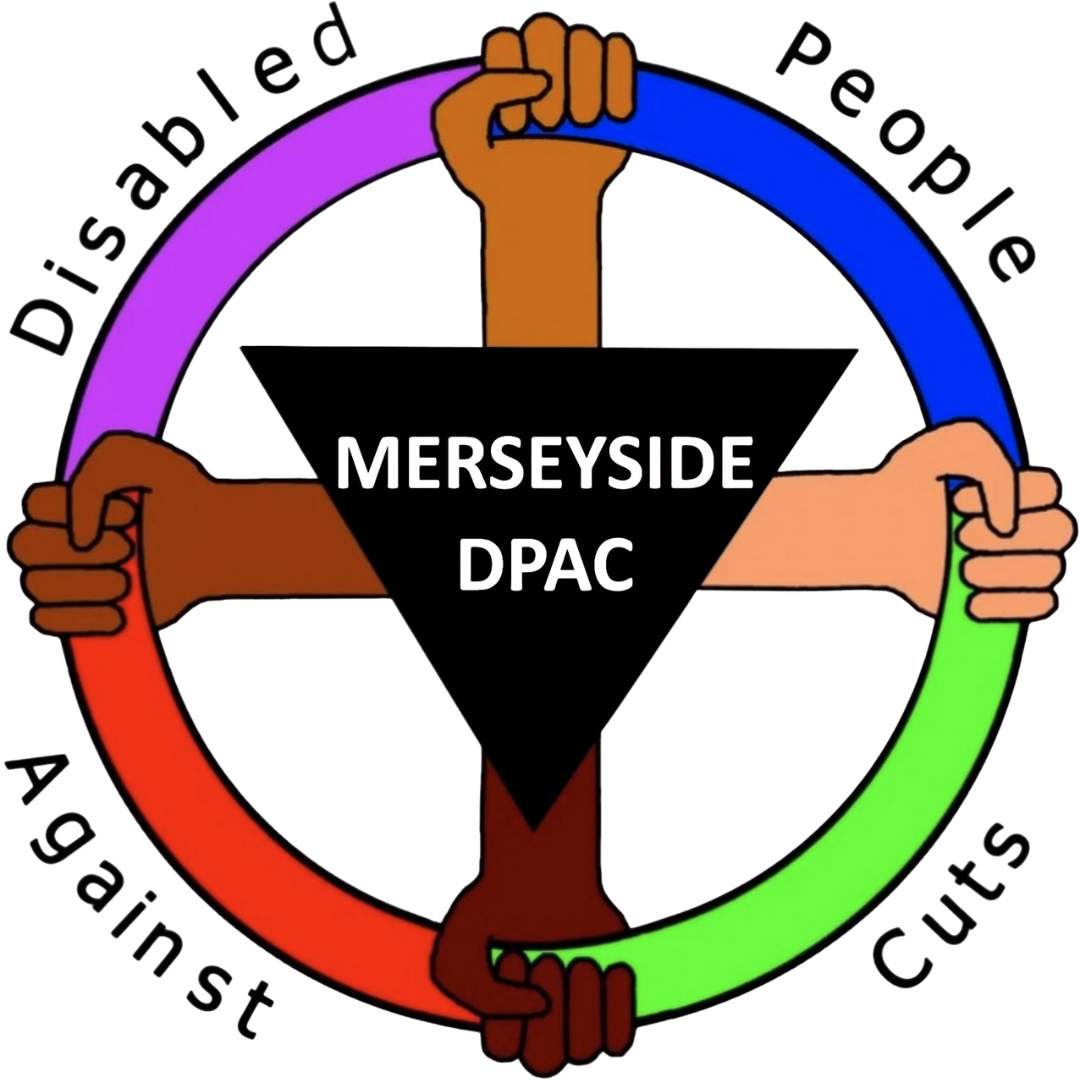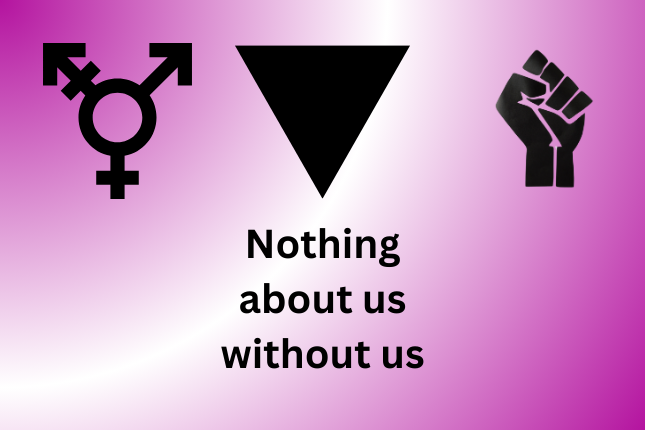The sustained attacks on disabled people by consecutive governments have been condemned by the United Nations since 2017, when they said that “there is reliable evidence that the threshold of grave or systematic violations of the rights of persons with disabilities has been crossed” by the UK.
Despite this our situation has only worsened. A follow-up report published in March 2024 concluded that “no significant progress has been made”, and that “the [UK] has failed to take all appropriate measures to address grave and systematic violations of the human rights of persons with disabilities and has failed to eliminate the root causes of inequality and discrimination […]. This failure exists particularly with respect to the [UK]’s obligation to guarantee the right of persons with disabilities to live independently and be included in the community, to work and employment, and to an adequate standard of living and social protection”. It also found that the evidence revealed “a disturbingly consistent theme: disabled people resorting to suicide following the denial of an adequate standard of living and social protection”. It directly linked this to the introduction of the harsher Work Capability Assessment and Employment Support Allowance and a revised sanctions regime. The situation has only deteriorated further with the subsequent replacement of Disability Living Allowance with Personal Independence Payment modelled on WCA processes, such as a computerised descriptor points-based system and for-profit companies subcontracted to assessment contracts.
A report on the human rights impact of social security system failures in the UK published by Amnesty International in April 2025 concluded that “the UK’s fragmented, cruel and punitive approach creates a cascading effect of human rights violations”.
There is no official body in the UK that we as disabled people can safely and responsibly ask to investigate this. We should be able to call on the Equality and Human Rights Commission (EHRC) to investigate, but it is evident that they have been institutionally captured and co-opted to serve a right-wing agenda under the leadership of Kishwer Falkner.
Former staff of the EHRC have called it institutionally racist: “I was vilified by the senior management (including [Human Resources]) for speaking up on race, and ended up suffering from work-related stress. The very same race issues which were said to exist at organisations and employers we investigated existed at the [EHRC].” “I’m tired of being part of an institution that is meant to support the equality and human rights of ethnic minority people, that is meant to acknowledge and accept structural and institutional racism, yet find myself in an institution that is colluding in its denial.”
Faced with an EHRC that ignores pervasive racism in the Home Office and the Conservative party, and refuses to use its monopoly to bring legal proceedings on human rights grounds without specific victims having to be a party in the case, racial equality organisations have called for a means to bypass the EHRC’s inaction by extending this power to civil society organisations.
Falkner herself has expressed disturbingly racist views that repeat far-right talking points about “grooming scandals” and improperly place collective responsibility to “disavow” them on entire minority ethnic communities.
The EHRC under Falkner has also waged war against the trans community. From the beginning of her appointment by Liz Truss, Falkner has extensively collaborated with anti-trans organisations and interests, at times overriding concerns raised by EHRC staff:
- In 2022, the EHRC intervened calling for a delay in Gender Recognition Act reform and in banning gender identity conversion therapy, leading to widespread criticism by LGBTQ+ and human rights organisations.
- In the wake of the transphobic Supreme Court ruling redefining sex under the Equality Act 2010 as “biological sex” (effectively someone’s sex assigned at birth, or any transphobe’s perception of it), the EHRC has issued “appalling” interim advice taking the most maximalist and trans-exclusionary possible interpretation of the ruling. Its interpretation allows trans people to be excluded from both male and female toilets at work and in public places, for instance. This has already caused documented problems for trans people at work.
- The EHRC’s position seems to be that trans people should be forced into accessible toilets — no matter whether they are actually available or whether there is sufficient capacity. Our position is clear: trans people have a right to use accessible toilets and should not feel inhibited from doing so, but to propose this as a “solution” justifying trans people’s exclusion from gendered facilities is both disablist and transphobic.
- The decision made by the Supreme Court had earlier been lobbied for by the EHRC (violating the requirement of independence for its certification as a human rights organisation under the Paris principles). A UN expert report said that “through its advice, the [EHRC] inappropriately offered the Government a formula to seek to exclude trans and gender-diverse persons from legal protections that they currently enjoy under the law of the United Kingdom – and that they will continue to enjoy under international human rights law. The Independent Expert finds that advice to be flawed, not based on evidence, lacking legal need or legitimate aim, and deeply harmful to the physical and mental integrity of trans and gender-diverse persons and the LGBT community in general.”
Whilst a human rights watchdog should be protecting the interests of marginalised people, including disabled people, we have no confidence that placing further responsibility on the EHRC to protect disabled people’s rights would be anything other than harmful. It has denied those rights and given scant regard to protecting them in the past:
- The EHRC has previously faced criticism from Disabled People’s Organisations for failing to hold the UK government to account on disability rights, and submitting reports to the U.N. that were deemed not fit-for-purpose.
- It failed to sufficiently investigate the unlawful treatment of disabled benefit claimants that has led to deaths. The current leadership abandoned an inquiry into this, after initially delaying it without consultation with its own board nor its disability advisory committee.
- It refused to apologise after having said that it “does not recommend that ‘long covid’ be treated as a disability” — another clear misrepresentation of the Equality Act and denial of disabled people’s rights.
- In 2022 the EHRC scrapped its disability committee without consultation, which shows that it has no commitment to co-production or independence from the government.
We believe that the EHRC throws ALL marginalised people under the bus, and especially those of us who are multiply marginalised.
It is abundantly clear that the ideological commitments of the EHRC as an institution are too closely aligned with the interests of government and of reactionaries that oppose human rights. They are not our allies, and calling on them for protection could harm us further.
The role of protecting human rights in the UK, of disabled people or anyone else, cannot be fulfilled by the EHRC in its current form. That would require an organisation under completely new leadership, with clear commitments to genuinely co-produced work with our organisations as equal stakeholders.
Nothing About Us, Without Us.
We call upon the U.N. to:
- step up their investigation into the violations of disabled people’s rights in the UK;
- urgently condemn the proposals in the Pathways to Work Green Paper, the Terminally Ill Adults (End of Life) Bill, the cuts to Access to Work and Disabled Students Allowance;
- revoke the EHRC’s speaking rights at the UN Human Rights Council and remove its Global Alliance of National Human Rights Institutions (GANHRI) accreditation — since it has failed the most critical of the Paris Principles: to be “competent to promote and protect human rights”;
- push for genuine co-produced policies and reforms to social care provisions;
- support the calls of Disabled People’s Organisations to Free Our People from detention and institutionalisation, under the disablist Mental Health Act and otherwise, and to condemn the treatment of disabled prisoners.
We call on the UK government to replace the EHRC with an organisation that can truly protect our human rights.
Signed
Merseyside Disabled People Against Cuts
Manchester Disabled People Against Cuts
Manchester Trans Liberation Assembly
Swansea Disabled People Against Cuts (DPAC)
GM Unite Community branch
If your organisation or group would like to add your signature to this statement, you can sign using this Google Form

